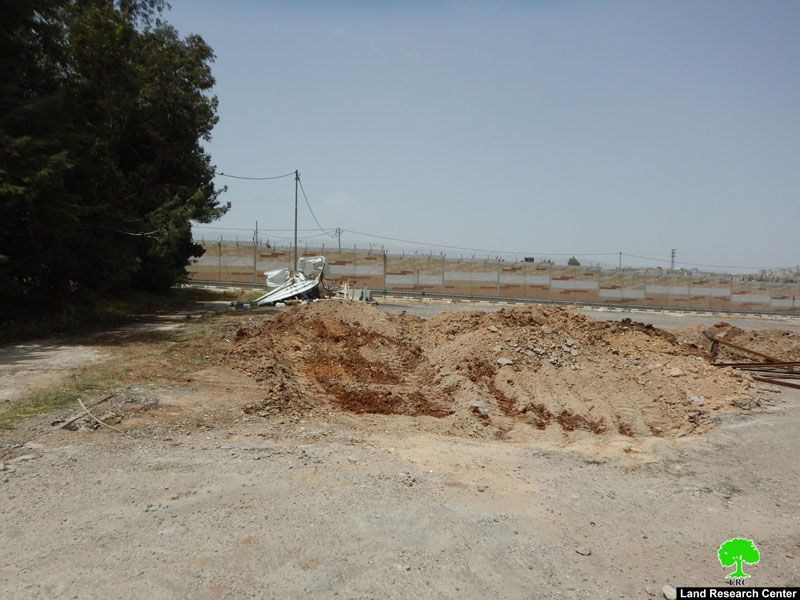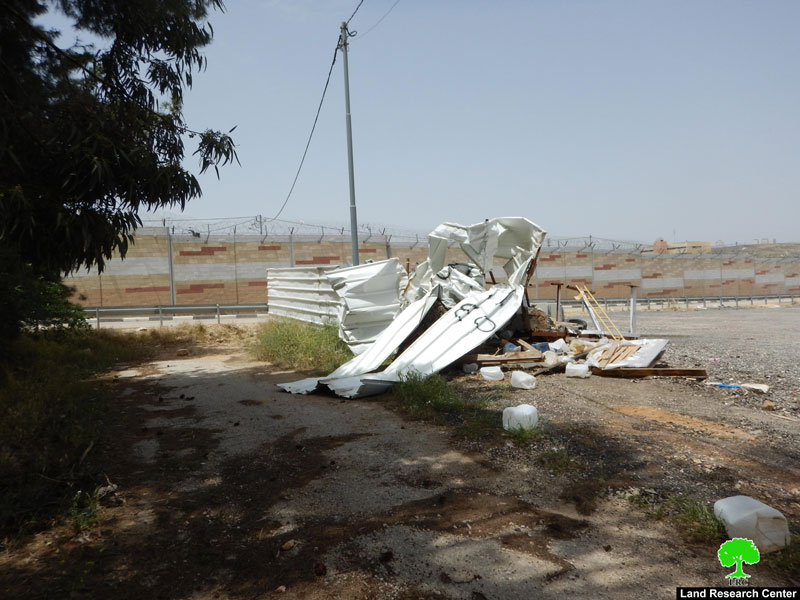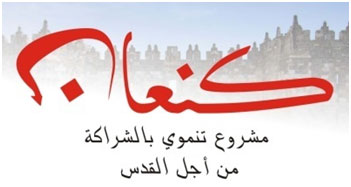2018-05-01
Israeli Occupation Forces ravage some lands in Qalandiya town- Jerusalem
On May 01, 2018, the dozers of Israeli Occupation Forces ravaged some lands located in the Israeli industrial zone of Atrot, which is founded on confiscated lands from Qalandiya town, north Occupied Jerusalem.
Reportedly, the razed plot ( 4 dunums) was used as parking for trucks and is owned by citizen Ashraf Idris. In the same context, the dozers demolished the tin-plates wall surrounding the parcel. Noteworthy, the attacked land is only 10 meters away from the apartheid wall; the Israeli claim that got the parcel razed.
In the same time, Israeli Occupation Forces delivered demolition order for owners of structures in the town on the claim of "unlicensed construction", taking into account that Qalandiya and Kufr Aqab areas are considered under the Israeli municipal control. Unfortunately, the Israeli municipality doesn’t offer basic services for the residents of both areas.


Qalandiya and the apartheid wall:
The Israeli apartheid wall isolated the 3,273 dunum Qalandiya town to be surrounded and trapped from all directions. People of the town cannot communicate and interact with neighbors but through the only entrance that leads to Ramallah city. Noteworthy, Qalandiya was located within the boundaries of Jerusalem before the wall separated it from the city.
Atarot colony is reported to confiscate 555 dunums from the lands of Qalandiya in addition to another 429 dunums, which were taken for Qalandiya airport that is now closed.
Land Research Center LRC sees that demolitions contradict with all of the International conventions and Humanitarian laws including:
- Article 17 of the (1948) Universal Declaration of Human Rights stating: “Everyone has the right to own property alone as well as in association with others. No one shall be arbitrarily deprived of his property.”
- Section ‹G› of article 23 of the (1907) The Hague Conventions asserting: “In addition to the prohibitions provided by special Conventions, it is especially forbidden to destroy or seize the enemy's property, unless such destruction or seizure be imperatively demanded by the necessities of war.”
- Article 53 of the Geneva Fourth Convention (1948) declaring: “Any destruction by the Occupying Power of real or personal property belonging individually or collectively to private persons, or to the State, or to other public authorities, or to social or cooperative organizations, is prohibited, except where such destruction is rendered absolutely necessary by military operations.”
- Section 1, Article 11 of the International Covenant on Economic, Social and Cultural Rights (1966): “The States Parties to the present Covenant recognize the right of everyone to an adequate standard of living for himself and his family, including adequate food, clothing and housing, and to the continuous improvement of living conditions. The States Parties will take appropriate steps to ensure the realization of this right, recognizing to this effect the essential importance of international co-operation based on free consent."
This case study is part of Kan'aan Project

